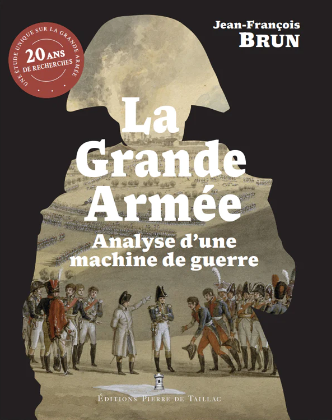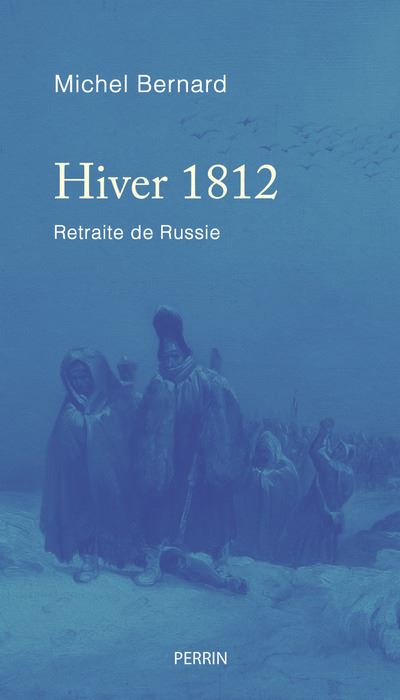History Prizes 2023
Grand Prix of the Fondation Napoléon 2023

Jean-François Brun, La Grande Armée. Analyse d’une machine de guerre [La Grande Armée: Analysis of a war machine], Éditions Pierre de Taillac
The fruit of 20 years of work, this book provides a systemic analysis of the Grande Armée: the first part describes in detail the military tools organised to implement the principles of action adopted by the Emperor at the operative and tactical levels. The study covers command structures, elementary units, en passant par les pions de manœuvre (corps and divisions) and specialised elements (cavalry reserve, grand parc). The second part is made up of thematic sections (effects of fire, organisation of different weapons, logistics, organisational charts, etc.) combining summary paragraphs and detailed figures. A special effort has been made to present the logic of interdependence and coherence between the various entities making up the Grande Armée, offering a sort of manual of Napoleonic forces. Deliberately accessible to the uninitiated, La Grande Armée: Analyse d’une machine de guerre aims to fill a gap in historical studies in this field.
Jean-François Brun,who holds an “agrégation” [official qualification for public education] and a PhD in history, is a lecturer and researcher at the University of Saint-Étienne where he notably served as head of the history department, director of a research laboratory linked to the CNRS, and dean of the Faculty of Humanities and Social Sciences. A reserve colonel and an auditeur at the IHEDN, he took part in several OPEX operations in the Balkans. A specialist in military history, his work focuses more specifically on the organisation of armies as a system and on the evolution of armaments. His work has been published in the form of books, chapters in collective works and articles in specialised journals.
Read our review (in French) | Read an interview (in French) with the author | Read an extract (in French)
Fondation Napoléon Jury Prize 2023
Michel Bernard, Hiver 1812. Retraite de Russie, [Winter 1812: the Russian Retreat], Éditions Perrin
On the 15 September 1812, Napoleon entered Moscow. In the night, the city was engulfed in a sea of flames. After a long wait, after hoping to open negotiations with the Tsar, the Grande Armée left the ruined capital on 19 October; the Emperor wanted to crush the Russian Army and establish quarters in Smolensk before the arrival of winter. But the cold and snow were ahead of schedule. The Russian winter took the exhausted, under-equipped, poorly-supplied troops by surprise, held back by their spoils, their wounded and their sick. The tragic retreat from Russia had begun.
Michel Bernard recounts with rare mastery the haunting journey into the white hell of the Grande Armée, following the itinerary of eleven men and one woman across snow-covered plains, icy hills, and petrified forests, amidst fighting and Cossack harassment. He tells the story of their daily struggle against extreme cold, blizzards, hunger, fear, and despair. She’s an actress; they’re officers, non-commissioned officers or soldiers, diplomats (Caulaincourt), civil servants and soon-to-be great writers (Stendhal); they fight and advance, over mountains and rivers, sustained at first by a sense of duty, then by the survival instinct that breaks down hierarchical frameworks, social conventions and even moral guidelines. There was no army, no friends, just the desire to get through, to put an end to an ordeal that surpassed all known suffering.
Napoleon is one such man. Initially bewildered by the progress of a campaign in which nothing went as he had hoped, he strove to salvage what could be salvaged when disaster loomed. For him and his Empire, it was the beginning of the end; for the 20,000 survivors, aged, disillusioned, their souls scarred by incurable wounds, “it’s still war, and already, irrepressibly, the time of remembrance”.
A graduate of the École Nationale d’Administration (1992, promotion Condorcet), Michel Bernard is a novelist and essayist. His work has won numerous major literary prizes, including the “Prix littéraire de l’armée de terre-Erwan Bergot”, the “Prix France Télévisions” and the “Grand Prix catholique de literature”.
Read our review (in French)

